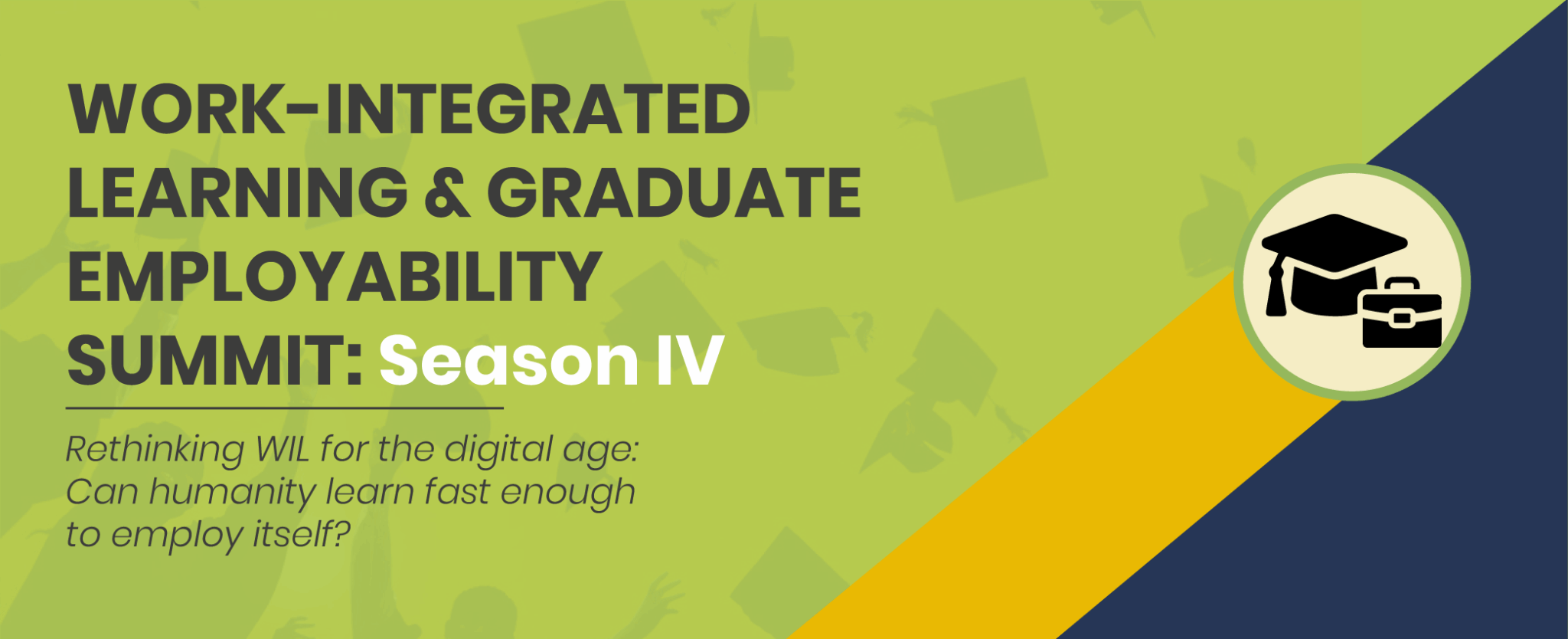
17 – 18 July @ Emperor’s Palace, Johannesburg
Event Overview and Background
The intersection of Work Integrated Learning (WIL) and graduate employability has emerged as a critical nexus for preparing students for the complexities of the modern workforce. WIL and graduate employability are not merely sequential or complementary processes but rather a symbiotic dance, where each partner sets the tempo, informs, challenges, and elevates the other in a dynamic interplay that redefines career readiness for a globalised, technology-driven economy.
Virtual WIL placements, powered by AI simulations or remote collaboration tools, are expanding access to work experiences beyond geographic and economic barriers. A student in remote South Africa can now intern with a Silicon Valley startup, syncing their employability to global standards without leaving home. Yet, this shift also complicates the choreography: how do we ensure virtual WIL fosters the same depth of human connection and contextual learning as in-person experiences?
Set against the backdrop of a world where automation and quantum computing are reshaping industries, the 4th edition of the Work Integrated Learning & Graduate Employability Summit promises to be a rich, forward-looking experience for all involved. With its compelling theme and well-crafted program, the summit will not only address the current trends and challenges in WIL but also actively shape its future direction.
Attendees can expect to gain valuable knowledge, forge meaningful partnerships, and be part of a collective effort to enhance how we connect education with employment. From actionable recommendations to energized networks, the event outcomes will help ensure that WIL continues to grow as a transformative approach, preparing learners to thrive in their careers and contribute to their industries from the onset.
Target Audience
This summit welcomes a broad audience of stakeholders involved in work-integrated learning and workforce development. By bringing together this diverse audience – from classroom to boardroom – the conference creates a rich environment for cross-sector dialogue. Each group will have the opportunity to voice their experiences and expectations, making the conversations well-rounded and impactful.
Attendees will include:
- Lecturers and Academic Leaders– University and college faculty, WIL coordinators, career services professionals, and curriculum developers who integrate practical experience into learning. These attendees will gain insights into designing and managing impactful WIL programs.
- Policymakers and Administrators – Government officials, education authorities, and policy advisors focused on education, skills training, and employment. They will explore how policies and support systems can expand quality WIL opportunities and address skills mismatches in the economy.
- Industry Leaders and Employers– Company executives, HR managers, training supervisors, and internship/apprenticeship hosts interested in talent development. Industry participants will learn how to better collaborate with educational institutions and leverage WIL to develop future employees.
- Students and Early Career Professionals – Learners who have participated in internships, co-operative education, or other WIL experiences (or plan to). Students and recent graduates can share their perspectives and discover how WIL programs can be improved to enhance employability and career readiness.
Summit Objectives
- Navigate future directions– Facilitate discussions on emerging trends, challenges, and opportunities in WIL. This includes examining how changes in the workforce and technology will influence WIL, and brainstorming ways to adapt (or even reinvent) WIL for the future.
- Explore curriculum innovation – Educators and administrators will discuss how to integrate real-world projects and placements into the curriculum in creative, scalable ways. This might involve redesigning courses to include industry-provided problems, developing micro-placements or project-based WIL for large student cohorts, and using multidisciplinary capstone projects as WIL. The conversation will also touch on ensuring academic quality and learning outcomes in WIL courses, and moving beyond once-off internships to a more integrated WIL curriculum.
- Foster collaboration– Bring together academia, industry, and government to strengthen partnerships and co-create strategies for effective WIL programs. By connecting diverse stakeholders, the event seeks to build a community committed to improving student work experiences.
- Inspire policy and strategy recommendations – Through the insights gathered in discussions, the conference will generate recommendations to guide policy and institutional strategy on WIL. This might take the form of a conference summary report or whitepaper highlighting best practices and suggesting actions for governments, educational institutions, and industry bodies. For example, delegates may put forward ideas for incentives to encourage industry participation in WIL, or frameworks to ensure quality and equity in WIL opportunities.
- Share best practices– Provide a platform for educators and practitioners to exchange success stories, case studies, and research findings on WIL. Participants will learn about proven models and innovative practices from different institutions and sectors, enriching their own approaches.
Event Format
The conference program is designed to be engaging and interactive, with a variety of session formats that cater to learning, sharing, and networking:
- Keynote Speeches – Inspiring keynote addresses will kick off each day, delivered by prominent thought leaders in education and industry. Expect visionary talks that set the stage for the day’s theme – for example, a keynote might paint a picture of the future workforce and challenge attendees to rethink how WIL can evolve. These sessions will energize participants and provide big-picture insights into WIL trends.
- Panel Discussions – Expert panels will bring multiple perspectives together on stage to delve into the key topics. Panelists may include educators, employers, policymakers, and students, ensuring a well-rounded conversation. Moderated discussions will allow panelists to share experiences and debate ideas (such as how to balance academic and industry expectations in WIL), followed by Q&A where attendees can engage directly with questions. Panels offer a dynamic way to compare approaches and learn from diverse successes and challenges.
- Interactive Workshops – Hands-on workshop sessions will give attendees a chance to actively develop skills and solutions. In workshops, participants might collaborate on designing a WIL curriculum module, practice using a new online tool for mentoring interns, or work through case studies of common WIL obstacles. Facilitators will guide small group activities, making these sessions practical and outcome-oriented. Attendees will gain not just knowledge but also tangible tactics and resources to apply after the conference.
- Networking Opportunities – Recognizing the value of connections, the schedule will include dedicated networking events. Structured networking sessions (like roundtable meet-ups sorted by interest area) and informal social gatherings (coffee breaks, an evening reception) will help participants expand their professional network. Educators can meet potential industry partners, employers can find like-minded peers or future talent, and students can interact with mentors. These moments are key for sparking collaborations that may continue long after the conference.
- In addition, there may be poster presentations, breakout discussion groups, and expo booths from organizations involved in WIL, all contributing to a rich and varied program. The overall format ensures a balance of informative presentations, lively discussion, and interactive learning – as well as time to mingle and exchange ideas one-on-one. Attendees can customize their experience by attending sessions most relevant to their interests, whether they seek high-level strategy or on-the-ground techniques.
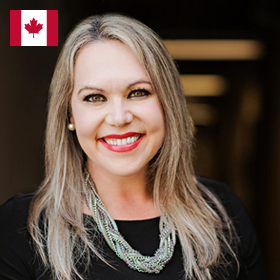
Anne-Marie Fannon

Dave Fenton

Dr Aranee Manoharan
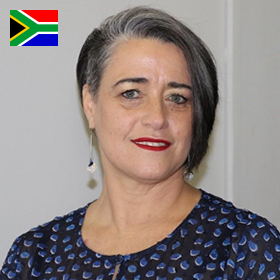
Dr Roelien Brink
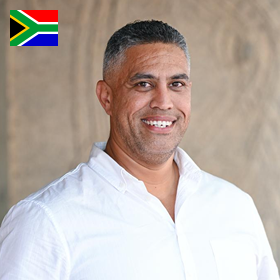
Stafford Bomester
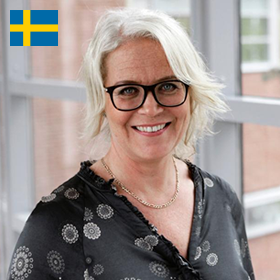
Prof Ulrika Lundh Snis
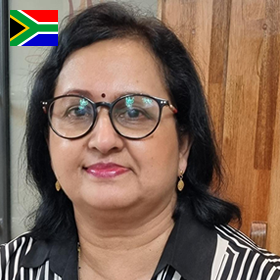
Prof Lalini Reddy
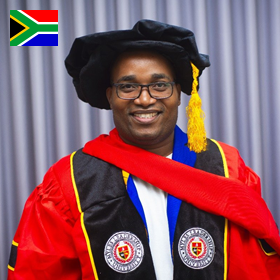
Dr Sanele Gamede
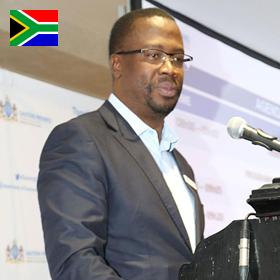
Tseliso Mohlomi
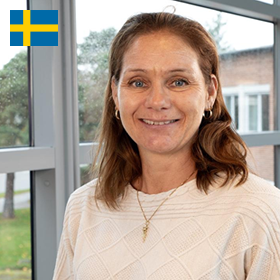
Kristina Areskoug Josefsson

Dr Sean Kruger
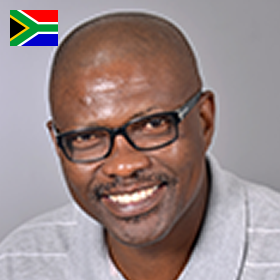
Dr Israel Mkhuma
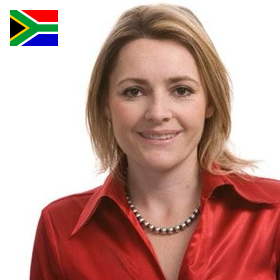
Helen Wilsenach
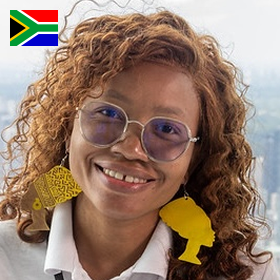
Lungile Maile
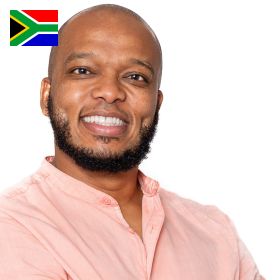
Claybourne Appies
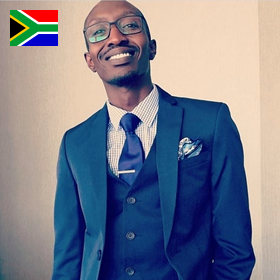
Veli Mokhabodi

Dr Charles Cotter
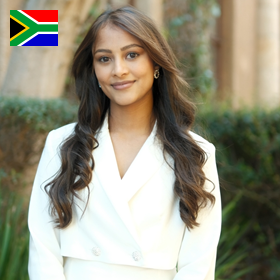
Talita Boodhram

Director: Work-Learn Institute; University of Waterloo, Canada
Anne-Marie Fannon
Anne-Marie Fannon, a passionate advocate for work-integrated learning (WIL), is the Director of the Work-Learn Institute at the University of Waterloo. With over 20 years of experience in higher education, she has led WIL development and enhancement locally, nationally and internationally. Her focus is on building scalable and sustainable WIL ecosystems that benefit partners, students, and higher education institutions. Fannon’s commitment to WIL extends beyond academia. She is a member of the executive council of the World Association for Cooperative Education and Work-Integrated Education. She actively engages with Co-operative Education and Work-Integrated Learning (CEWIL) Canada, serving on CEWIL’s Government and External Relations Committee. In 2016/2017, as CEWIL’s president, she led the expansion of CEWIL’s mandate from co-op to work-integrated learning.

University of Toronto, Canada
Dave Fenton
Dave Fenton is the Assistant Director of External Relations with the Department of Management at the University of Toronto Scarborough (UTSC). He leads a team of relationship managers that support Management’s accredited co-operative education program and oversees the curricular work-integrated learning (WIL) program through an innovation center named THE BRIDGE. Through the team’s efforts, Management delivers roughly 3,000 WIL experiences in the classroom across 38 courses a year. Dave has been published in Cooperative Education and Work-Integrated Learning Canada’s (CEWIL Canada) e-book “The Practice of Co-op and Work-Integrated Learning in the Canadian Context”, presented publications at the WACE International Research Symposium, the World Association of Cooperative Education (WACE) World Conference, the CEWIL Research Spotlight, and serves as facilitator of Global WIL Modules. He is one of four practitioners globally that holds a Certificate in Global Work-Integrated Learning. Dave holds a Master of Education from the Ontario Institute for Studies in Education (OISE) at the University of Toronto

Senior Associate Director: Careers & Employability ; King’s College London, UK
Dr Aranee Manoharan
Aranee is Senior Associate Director for Careers & Employability at King’s College London. With experience across the areas of teaching, student experience, and educational development, she specialises in taking a whole student lifecycle approach to improving graduate outcomes. An Advance HE Senior Fellow, she specialises in inclusive approaches to curriculum development including programmatic curriculum design. She has significant experience working with academic and professional services teams to implement high-impact pedagogies & assessments that support the skills and capability development of diverse student populations, with a particular focus on community and industry-engaged learning.
A committed advocate for equity and inclusion, Aranee serves on a number of advisory groups, including the Institute for Student Employers (ISE) EDI Working Group; Advance HE’s Race Equality Charter Governance Committee; and as a Board Director for AGCAS, the UK’s professional body for careers services, where she leads the social mobility, widening participation, and regional inequality portfolio. Aranee is also the Director of AM Coaching & Consulting, a consultancy specialising in establishing inclusive working, learning, and research cultures.

Director: Co-operative Education – Tshwane University of Technology
Dr Roelien Brink
Roelien is the Director of Cooperative Education at Tshwane University of Technology (TUT). She is the Universities South Africa (USAf) Chair for the Learning in Practice Community of Practice (LiPCoP) working group, a member of the USAf World of Work Strategy group, and the USAf representative at the SASCE board.
Roelien is involved with research on WIL that is being conducted in Ireland and South Africa. She is the lead researcher for Work-Integrated Learning South Africa under the auspice of THENSA (WILSA) on an environmental scan research of WIL landscape in SA. She is also the interim Director for the newly established Association for WIL.

Director: Careers Service – University of Cape Town
Stafford Bomester
With extensive experience in management, administration, and stakeholder engagement, Stafford has held leadership roles in both public and private higher education institutions across the Western Cape. Previously, Stafford served as UCT’s Head of National Fundraising, where he led strategic initiatives such as the “Access to Success” financial aid campaign and collaborated on the “I AM UWC” campaign. He successfully formalized donor project management frameworks and fostered cross-departmental collaboration to achieve fundraising goals.
Prior to his time at UCT, Stafford led the Marketing and Development department at Helderberg College of Higher Education, overseeing a brand overhaul and implementing innovative fundraising protocols. He also spent four years in South Korea with the Sahmyook SDA Language Institute and collaborated with leading brands such as LG and Samsung on consumer behaviour research.
Among several other qualifications, Stafford holds a Master’s in International Development (Andrews University), specializing in Organisational Leadership.

Vice-Chancellor and Director of Work-integrated Learning Research Group ; University West, Sweden
Prof Ulrika Lundh Snis
Ulrika is a Professor of Informatics specializing in Work-integrated Learning (WIL). She is part of University West’s management team where she leads WIL academic environment, balancing education, research, and collaboration with the university’s strategic partners to address societal challenges.
Ulrika’s research involves over 25 externally funded projects and resulting in more than 100 scientific publications, co-authored 4 books, arranged several international conferences and special sessions. She focuses on competence and learning processes in the development and use of digital systems and services. With the needs of users and businesses in focus, Ulrika engages in various types of digitization projects with a bearing on socio-technical issues that bridge the borderland between social practices and technical applications.
The research takes place within the framework of University West’s area of strength “Work-integrated Learning” (WIL). Ulrika teaches doctoral programmes in work integrated learning. She has supervised 12 doctoral students for their dissertation and is currently the main supervisor of 3 doctoral students in informatics and work-integrated learning.

Director: Centre for Community Engagement & Work Integrated Learning – Cape Peninsula University of Technology
Prof Lalini Reddy
Prof Lalini Reddy began her academic career at DUT in 1987 in the department of Biotechnology and Food Science. She has a Doctorate in Biotechnology and was appointed Associate Director Biotechnology in 2004. She joined the Faculty of Applied Science in CPUT in 2013 as the faculty Work-integrated Learning Co-ordinator. In 2020 she was appointed HOD of Biotechnology and Consumer Science. Currently Prof Reddy is the Director in the Centre for Community Engagement and Work Integrated Learning at CPUT.
Prof Lalini Reddy has extensive experience in Curriculum Renewal, Work-Integrated Learning (WIL), Community Service Learning, General Education, International Education and Programme Quality Audits. As a researcher in plant medicine, bioenergy and education she has supervised many postgraduate students and published in peer reviewed journals. She is passionate about community service and has offered value-based teacher training (SSEHV) in South Africa and 11 other African countries.

Graduates Employability Coordinator – University of Johannesburg
Dr Sanele Gamede
Sanele Justice Gamede is Lecturer in the Department of Communication and Media. He holds a PhD, MA, BSS Honors in Cultural and Media Studies, and Bachelor of Social Sciences degree in Media and Management, all from the University of KwaZulu-Natal. He has vast experience in teaching and learning, in the Media, Journalism and Research Methodology space. His research interests are: Media and Audiences, Public Participation in the Media Political News, and New Media Influence. His current project focuses on Communicating Climate Change for Young People. Sanele contributes vastly to different media platforms on education, youth development, and skills development in and outside South Africa. He runs different youth related educational community initiatives and campaigns targeted at learners, students, and unemployed youth. He has published four books on different subjects such as: choosing a career, navigating education in the online space, employability and productivity in the workplace. He has managed to create online programmes from his books to benefit young people anywhere in the world.

Senior Director: Institute for the Future of Work – Tshwane University of Technology
Tseliso Mohlomi
Tseliso is currently working as the Senior Director for the Tshwane University of Technology’s Institute for Future of Work. His responsibility is to pioneer the initiative by the university to bridge the gap between the industry and the academia. This is to aid the university in its quest to produce high impact research, develop high tech solutions in partnership with the industry and to produce future ready graduates. He joined the university direct from the public sector where he worked for the Gauteng Department of Economic Development as the Director responsible for Strategic Partnerships, Special Projects, and International Relations. In this role he was responsible to source and forge strategic partnerships between government and corporate sector, lobby for the integration of the SMMEs into the mainstream economy through market access initiatives. He also liaised with the embassies, multilateral, and bilateral development agencies to facilitate collaborations and leverage foreign direct investment.

Professor of Work Integrated Learning – University West, Sweden
Kristina Areskoug Josefsson
Kristina is a Professor in Work-Integrated Learning at University West in Sweden. She is also an Adjunct Professor in Public health and Rehabilitation at the Department of Behavioral Science, Oslo Metropolitan University, Norway. Her other assignments include being a reviewer of international scientific journals for research funders, and is a member of the assessment committee, both nationally and internationally.
Kristina does interdisciplinary research in work-integrated learning (WIL), co-production, sexual and reproductive health and rights (SRHR), work environment, and quality improvement and leadership in health and welfare. She has several ongoing research projects nationally and internationally. Examples of ongoing projects are WIL in doctoral education and Evaluation and implementation of SEXIT in student health.
Kristina’s clinical background is as a specialist physiotherapist in rheumatology. She completed her dissertation at Lund University, in 2013, with the thesis “Sexual health in Rheumatoid Arthritis: A physiotherapeutic approach”. Postdoc projects were then carried out with a focus on communication and knowledge about sexual health among occupational therapy, physiotherapy and nursing students and development of the Students’ Attitudes towards addressing Sexual Health questionnaire (SA-SH).

Senior Lecturer – Centre for the Future of Work, University of Pretoria
Dr Sean Kruger
Dr Sean Kruger is a leading scholar and practitioner in the Future of Work, digital transformation, 4IR innovation ecosystems, and workforce competency development. He is based at the University of Pretoria and teaches across both UP and GIBS. His work integrates emerging technologies including AI, 3D printing, IoT, and blockchain to shape future-ready education systems, employment models, and economic policy. He is engaged in a range of national and international projects in partnership with the ILO, Mastercard Foundation, NECT, DBE, DHET, and various corporate industry partners. His advisory and training work support digital skills development, green economy transitions, platform work integration, and education reform aligned with the demands of Industry 5.0 and Society 5.0.

Department of Inclusive Education – University of South Africa (UNISA)
Dr Israel Mkhuma

Head of Employment and Benefits – Bowmans
Helen Wilsenach
Helen Wilsenach heads Bowmans’ South African Employment and Benefits Practice. She does a substantial amount of board advisory work in terms of executive exits, onboardings, offboardings and restructurings, along with investigations and restraint of trade work, among other litigation, including from the CCMA level up to the Constitutional Court. Complex matters relating to the employment aspects of corporate transactions, including relating to section 197 of the Labour Relations Act are another strong point. Her client base is cosmopolitan, with many based in foreign jurisdictions. Helen is a member of the South African Society for Labour Law (SASLAW) and has sat as an acting judge of the Labour Court. She has BA and LLB (cum laude) degrees from Rhodes University.

Founder - Nubian Smarts
Lungile Maile
Lungile Maile, a former manufacturing supervisor from Johannesburg, is the visionary behind Nubian Smarts. Determined to make math accessible and engaging for children, she transformed her passion into an award-winning educational game, fostering a new generation of STEM enthusiasts in South Africa and beyond. Lungile Maile’s journey is unusual: she went from a manufacturing supervisor in Johannesburg to an award-winning educational game developer. The idea for her company, Nubian Smarts, came to her while working in a factory that produced bottled water. There, she observed a troubling trend: as machinery became more complex, the educational requirements for operators increased, leaving many of her colleagues behind in terms of skills. This sparked Lungile’s realization of the pervasive belief that certain subjects, particularly math, were too challenging to learn.
Driven by a genuine desire to alter this narrative, particularly for her young son Sakhiwo, who was three then, Lungile embarked on a mission to democratize math, making it more accessible and engaging. Her idea was simple: if you enjoy a subject, you don’t mind doing the work. “If you fall in love with something, you keep applying yourself even if it’s hard because you love it so much,” she explains. This was the mantra that fueled her journey.

Founder - Deaftouch
Claybourne Appies

Co-founder / Operations & Business Development Director - United Siyafunda NPC
Veli Mokhabodi

Dr Charles Cotter
Dr Charles is an independent global Blended Learning Practitioner and Learning & Development (L&D) Strategist, specializing in management training, with over 24 years’ industry experience in global talent development. Since 2004 he has offered training programmes (online & F2F) and L&D management consultation services in a vast array of disciplines ranging from management; (strategic) HRM; (strategic) L&D; business communication to soft skills for over 204companies in multiple industries, in both the public and private sectors, in 45 different countries.
Dr Charles was a contract lecturer at TUT for over 11 years and he has also facilitated for 7 other African higher learning institutions including the NWU School of Business Management; Enterprises University of Pretoria (UP); Southern Business School and Ibadan Business School. He was an external examiner for UNISA, the DaVinci Institute and the global professional association, GAFM. Dr Charles is a published writer in international HRM publications and regarded as an influential, L&D thought leader on social media, with a global, learning footprint and followership.
Charles has a PhD degree (Business Management). Previously, he completed Master of Business Administration (MBA) (cum laude), B.A Honours degree (cum laude) in HRD & B.A (Communication) degrees.

Chief Impact Officer – MiDesk Global
Talita Boodhram
FIRST DAY: THURSDAY, 17 JULY
Registration & Morning Mingle
Chairperson’s Opening Remarks
Beyond Work-Readiness: Building Human-Centric Capabilities for a Fast-Transitioning Labour Market
Dr Sean Kruger
How to Support Graduates in Building Critical Skills in a World of AI
Helen Wilsenach
Coffee/Tea Break
- WIL – a tool for learning in and for a professional life
- Diversity in WIL – for diverse students and contexts
- Shaping the future of WIL – towards a skilled and adaptable society
Prof Ulrika Lundh Snis & Kristina Josefsson
Dr Israel Mkhuma
Stafford Bomester
Networking Lunch
Dr Sanele Gamede
Mid-Afternoon Break
Work-Ready, World-Ready: Employability and Entrepreneurship Development through Subject Teaching & Learning
Dr Aranee Manoharan
Reflections & Chairperson’s Closing Remarks
SECOND DAY: FRIDAY, 18 JULY
Registration & Morning Mingle
1st Day Recap & Chairperson’s Opening Remarks
Designing Inclusive Curricula for Lifelong Success: Bridging Inequality and Opportunity in Higher Education
Dr Aranee Manoharan
Dr Roelien Brink
Coffee/Tea Break
Mentoring and Coaching as Graduate Development Tools: Converting Book Smarts into Work Smarts
Dr Charles Cotter
Prof Lalini Reddy
Networking Lunch
Universities Supporting Early-Stage Entrepreneurs Through Work-Integrated Learning: A Case Study of a Trans-Continental, Multi-Modal Partnership Model
Moderator: Dave Fenton
Panelists: Veli Mokhabodi, Talita Boodhram, Lungile Maile, Claybourne Appies
Mid-Afternoon Break
Anne-Marie Fannon
Recap & Chairperson’s Closing Remarks
